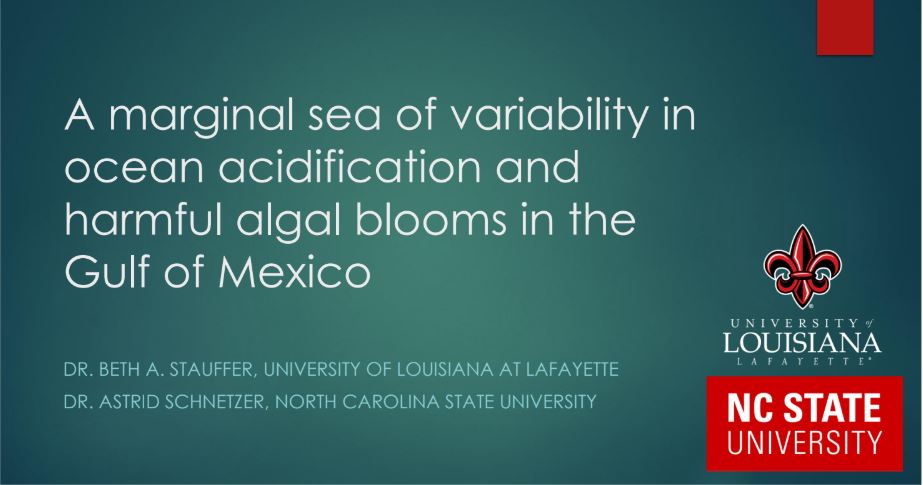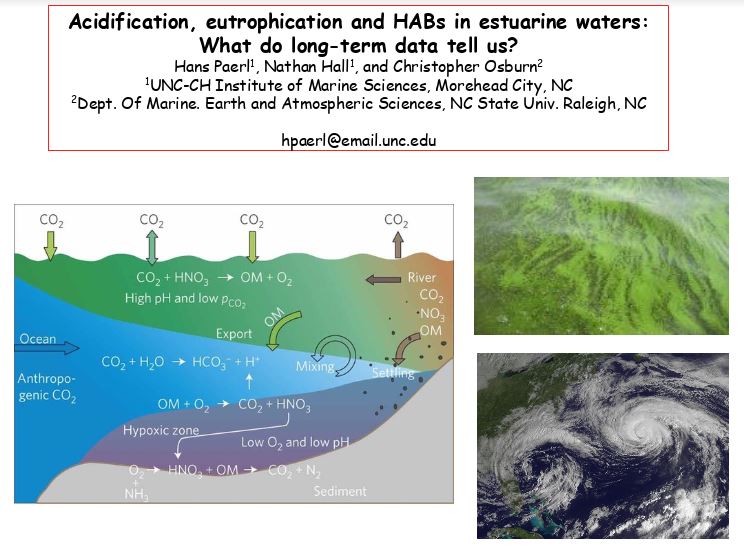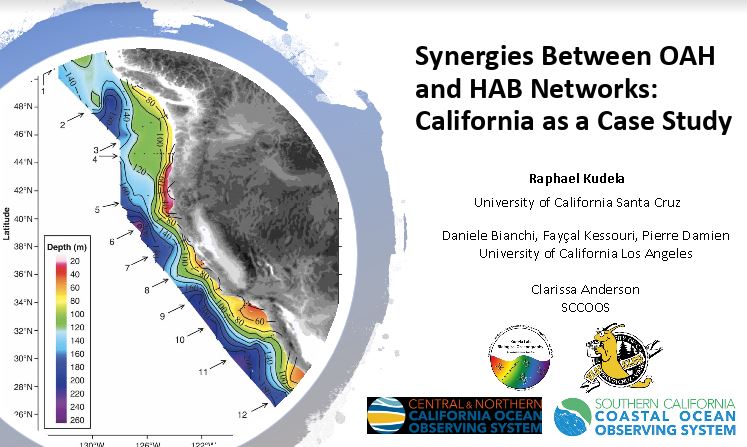
A marginal sea of variability in ocean acidification and harmful algal blooms in the Gulf of Mexico
Dr. Beth Stauffer, University of Lousiana at Lafayette, discusses how ocean acidification (OA) in the Gulf of Mexico (GOM) is driven by different physical and biogeochemical factors across the region, with most data available on the eastern and northern regions and very little information from the western or southern parts of the GOM. OA conditions in






